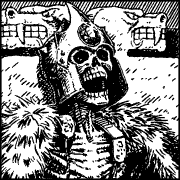|
warmans?
|
|
|
|

|
| # ? May 18, 2024 03:20 |
|
Kinda busy at work + really stopped caring about this. Anyone else is welcome to pick up.
|
|
|
Xander77 posted:Kinda busy at work + really stopped caring about this. Well it's real bad.
|
|
|
|
|
nanotubes fall everyone dies
|
|
|
|
Who wants to read some more of this terrible story? No one? Too bad, we're going to. We're so close to the end now, we may as well just get it over with. Chapter 102: Caring It is, the author notes, June 3rd 1992. Professor Quirrell is "very sick". Dying, in fact, it would seem. Madam Pomfrey banned him from teaching for health reasons but he yelled at her and she immediately gave in. Harry's obsessed with ending death. Eliezer Yudkowsky posted:Harry had checked the books, had learned that since he was too young to have sexual thoughts he would be able to approach a unicorn without fear. The same books had said nothing about unicorns being smart. Harry had already noticed that every intelligent magical species was at least partially humanoid, from merfolk to centaurs to giants, from elves to goblins to veela. All had essentially humanlike emotions, many were known to interbreed with humans. Harry had already reasoned out that magic didn't create new intelligence but just changed the shape of genetically human beings. Unicorns were equinoid, were not even partially humanoid, didn't talk, used no tools, they were almost certainly just magical horses. If it was right to eat a cow to feed yourself for a day, then it had to be right to drink a unicorn's blood in order to stave off death for weeks. You couldn't have it both ways. Eliezer Yudkowsky posted:"Tear a piece of your soul? That is a lie; A misdirection to hide the true secret. The required murder is not a ritual sacrifice at all. Sudden death sometimes creates a ghost if the magic bursts and imprints on a nearby thing. The horcrux spell channels that death-burst through the caster, creating their own ghost instead of the victim's, and imprints that ghost onto a special device. A second victim then picks up the horcrux device, which imprints your memories onto them. But only the memories from the time the horcrux device was made." Harry asks to be taught the spell anyway, just in case he can figure out solutions to these problems, and Quirrell basically says "Oh, I would have taught you anything you wanted if you'd just asked, but now I've changed my mind and I'm not going to." So Harry just moves on to the next topic; if you have to hate someone and want them to die, how can Quirrell just cast it at anyone, any time, even if he doesn't know them or have any reason to hate them or want them dead? Quirrell responds with some obtuse nonsense (edited for clarity): Eliezer Yudkowsky posted:"There is a limitation to the Killing Curse. To cast it once in a fight you must hate enough to want the other dead. To cast it twice you must hate enough to kill twice; to cut their throat with your own hands and watch them die, then do it again. Very few can hate enough to kill someone five times. They would get bored." The Defense Professor breathed several times, before continuing. "But if you look at history you will find some Dark Wizards who could cast the Killing Curse over and over. A nineteenth-century witch who called herself Dark Evangel (the Aurors called her A. K. McDowell) could cast the Killing Curse a dozen times in one fight. Ask yourself, as I asked myself, what is the secret that she knew? What is deadlier than hate and flows without limit?"
|
|
|
|
Tiggum posted:A nineteenth-century witch who called herself Dark Evangel (the Aurors called her A. K. McDowell) Just googled this to see if it's a historical figure. It's a vampire from an anime. I really don't know what I expected.
|
|
|
|
but if you actually didn't care for real, a ~rational~ person wouldn't bother to cast the spell, since it would be wasted effort
|
|
|
|
In the books, the thing about the killing curse that makes it "unforgivable" is that there is no way to cast it that is not murder. To use it, you have to actively want someone dead for the sake of them being dead. Like, your standard self-defense clause? Doesn't even apply. If you "want to stop someone from hurting you" or "want to protect someone" the way you could, say, aim a gun at someone and pull the trigger? Plain doesn't work. Wrong intention, magic fizzles. It's why the society of the setting is so collectively disturbed by anyone who can throw killing curses around like confetti - there is something really really wrong with you if you can drop into cold-blooded premeditated murder at the drop of a hat.
|
|
|
|
Thanks, I hate it! Ichabod Sexbeast posted:Just googled this to see if it's a historical figure. :yudkowski:
|
|
|
|
Ichabod Sexbeast posted:Just googled this to see if it's a historical figure. My first thought was "character from another fanfic".
|
|
|
|
Ichabod Sexbeast posted:Just googled this to see if it's a historical figure. Two other things that we definitely should have expected: 1) The Wikipedia article List of characters from the Negima! Magister Negi Magi series is over 15,000 words long. 2) The vampire in question is 700 year old but naturally only looks like a little girl, officer: what hath thou wroughth, jimbo posted:Evangeline Athanasia Katherine (Kitty) McDowell (エヴァンジェリン・アタナシア・キティ・マクダウェル Evanjerin Atanashia Kiti Makudaweru), listed as Evangeline A.K. McDowell (エヴァンジェリン・マクダウェル Evanjerin Makudaweru), and usually called by her classmates as Evachan, is student number twenty-six in the class. She is a British "high daylight walker" pure-blooded-vampire (真祖 Shinso, true Ancestor) who was turned at the age of ten during the Hundred Years' War. Oh, and from this chapter, Eliezer is a no-borders advocate. I think he got that from all the shining Silicon Valley libertarian entrepreneurs he Ch. 102 posted:It had come up much earlier, before the Trial, in conversation with Hermione; when she'd said something about magical Britain being Prejudiced, with considerable and recent justification. And Harry had thought - but not said - that at least she'd been let into Hogwarts to be spat upon.
|
|
|
|
Say what you want about how economically and socially realistic no-borders Libertarianism is, but at least it's better than the xenophobic racism that characterizes the other extreme. You can fault the bad writing, but you can't fault the sentiment.
|
|
|
|
Good on you for taking this on. Much better than my own recaps (low as that bar is).
|
|
|
|
Does he think that zero immigrants enter England or something?
|
|
|
|
Tiggum posted:Now, this is a character speaking not the author, so they could be wrong about any or all of that, but let's assume it's right. Quirrell's problem with it is that the cast remains alive after casting, so the imprinted version won't have any memories made after the spell is cast. He's worried about "continuity of consciousness", which is a term that people who don't think they believe in souls use when they want to talk about souls. Basically he thinks that he'd be dead and a soulless clone of his mind would be walking around pretending to be him. Ehh, I'm with him on this one. Like, we'll just take out the death bit of it for now and say that this is a spell that creates a perfect copy, no caveats. Both copies continue on living. They are both the 'real' Quirrell, they both have souls, and the status of 'original' or 'copy' is ultimately irrelevant, but: These two people are not, literally, the same person. They occupy different physical space, they experience different things. They do not share thoughts. Although they have the same memories up until the point of divergence, afterwards they will form new memories independent of the other. If Quirrell A is sitting down, and sees Quirrell 1 standing, he won't get confused whether he himself in his own physical body is sitting or standing. If Quirrel 1 eats a nice meal, Quirrell A will not remember it nor have his hunger sated. If they are offered a choice- one wins the lottery, the other is hit by a bus- well, they'll have a preference, won't they? Quirrell A might be willing to sacrifice himself for Quirrell 1's sake, but he won't consider his experience as being literally exactly identical to the other's. Quirrell 1's lack of pain does not mean that Quirrell A was not hit by the bus. It's not Quirrell, singular, who was both hit by a bus and won the lottery, it's the Quirrells, plural. Quirrell A was hit by a bus and Quirrell 1 who won the lottery. Two separate individuals, even though they are genetically identical and have the same memories up until the point of divergence. It's a relationship more like identical twin sibling, not a single being in two bodies. So Yudkowski's description of the horcrux protects the general 'idea' of the caster- if Quirrell A dies, there's still Quirrell 1 to go on Quirrell-ing- but it does not protect the individual instance of Quirrell A. That Quirrell 1 survives does not mean that Quirrell A has not stopped. Q-1 surviving will only bring comfort to Q-A in the same sense of having a legacy- like having children or surviving family or persisting in people's memory or what have you. It does not actually stop or provide a means of preventing or surpassing the physical and mental cessation of Quirrell A- which is what he cares about and seeks. Like, look at it the other way- Quirrell A dies. Does Quirrell 1 sit down and think, "oh, I'm dead." No, because QA's death doesn't mean anything to him other than like, emotionally. But spiritually or physically or metaphysically, Q1 is not in any way changed by A's death. So in the same way, Q1's life doesn't invalidate QA's death. Of course, in the HP series horcruxes were just anchors for the caster's consciousness, not independent beings. Although, the exception is the diary, which did seem to operate on its own. I'm not really sure why that is though, or why Yudkowski decided on taking that one to be the rule. Mazerunner fucked around with this message at 05:26 on Nov 19, 2018 |
|
|
|
Mazerunner posted:These two people are not, literally, the same person. Mazerunner posted:It's a relationship more like identical twin sibling, not a single being in two bodies. Mazerunner posted:That Quirrell 1 survives does not mean that Quirrell A has not stopped. Mazerunner posted:It does not actually stop or provide a means of preventing or surpassing the physical and mental cessation of Quirrell A- which is what he cares about and seeks. Anyway, shall we have the next chapter? Let's have the next chapter. Chapter 103: Tests Draco is looking for clues about Hermione's murder, and Quirrell, temporarily back to full strength, has decided to have the kids do their Ministry-set Defence Against the Dark Arts exam, despite previously saying he wasn't going to even when he was well, and also despite not having taught the actual curriculum. Except then it turns out the kids are more preapred than they thought? I guess this is Yudkowsky's scathing critique of standardised tests. Eliezer Yudkowsky posted:Halfway down the page was the first exam question. Eliezer Yudkwosky posted:The last question on the test was "What would you do if you suspected there might be a Bogeysnake underneath your bed?" The Ministry-approved answer, Harry could in fact recall from his read-through of the textbook at the start of the year, was Tell your parents. The problem with this had occurred to Harry right away, which was why Harry had remembered it. Anyway, Quirrell already gave them the grades and just made them do the exam as a sort of lesson on always being prepared for anything. Eliezer Yudkowsky posted:"All of you in this room have received grades of at least Acceptable. Neville Longbottom who took this test in the Longbottom home received a grade of Outstanding. But the other student who is not here has had a Dreadful grade entered on her record for failing the only important test that was given her this year. I would have marked her even lower but that would have been in poor taste."
|
|
|
|
Tiggum posted:They're not the same person from that point onward, but they were the same person before that. They're both the "real" Quirrell and regardless of which one dies the real Quirrell is still alive. All that's lost are the memories the "original" forms between making the copy and dying, which is functionally equivalent to amnesia. You don't die whenever you forget something. I agree that they are both real beings- but for all practical intents and purposes they are two discrete beings. Two individual people, regardless of how you define people or consciousness. After the point of divergence they are no longer identical. If one loses an arm, that person is no longer the same person as the one who did not. After the point of divergence, there is no 'real' Quirrell. There is now the 'real' Quirrell A and the 'real' Quirrell 1. Are two genetically identical siblings the same person? Even at the moment of birth? They are genetically identical. They have the same memories (none). And yet it would be absurd to say that they are the same human being- however you want to define human being. If one dies, you would never, ever claim to the parents that actually, there was no death, that nothing was lost, because the other still lives, would you? We can also define death as a loss of potential- that this being, this person will no longer act, will no longer experience, no longer grow (physically or mentally). However you want to define life, a dead person is explicitly Not That. If Quirrell A and 1 can be said to both have the potential to live different lives, then the death of one means the potential is lost- so the other's survival does not mean death was prevented. If under one circumstance, both A and 1 live to 100 years old, living different lives- would you not say that there were two people? Two different lives, however defined? If A were to die at 35 instead, is that not a loss of potential? You can clone grape vines, sort of, by using cuttings. Genetically identical. No memories to be lost or gained. One vine withers. The other continues to sprout. Is it one vine that is somehow in both the state of wither and bloom? Or is it two vines, one dead and one alive? Or, suppose I offered to create a perfect replica of a $20 bill in your pocket. Now you'll have $40 dollars. Cool! But then I burn one of the bills- or maybe a completely different bill. It really doesn't matter. The point is that you could have gained $20 dollars, but you didn't. Potential value was lost. Real or not, original or fake, you do not have as much money as you could have. So it is with a horcrux Quirrell. There is the potential for two lives (with the same starting point). If one dies, that potential is lost regardless of the other's status. quote:Without a soul (which Quirrell has stated doesn't exist) there is nothing "in" the body. There is no "individual instance" - no such thing as "continuity of consciousness". A person is just an idea. It's the ship of Theseus. It's the same ship no matter how much of it you replace, even to the point that no part of it is the same as it was to begin with. Quirrell is still Quirrell even if he's a copy. And if the entire ship is burned to a crisp? Another ship is constructed afterwards using different wood, but in the same design. Is that the same ship? What if the second ship was constructed before the first ship burned? Still the same ship? But ok- a person is defined by the 'idea' of themselves- something intangible, separate from their mind and body (sounds a lot like a soul to me, but hey). Well, after the point of divergence, Quirrell A and 1 are different ideas! Quirrell A is defined by the idea that he is sitting on the left side of the room, and people call him Quirrell A. Quirrell 1 is defined by the idea that he is standing on the right side of the room, and people call him Quirrell 1. If Quirrell A's meat is stopped, his idea is redefined to be 'dead', and the presence or continuation of Quirrell 1's meat means exactly jack-poo poo to him. We can allow for some discontinuations in the 'idea' of a person or object- changes in mind, in material, etc. But there are some breaks so sharp that we must end the old idea, and start a new one. Death or otherwise complete destruction, chiefly, but in this hypothetical, the creation of an "identical" copy must also necessitate a split. quote:It absolutely does prevent the physical and mental cessation of Quirrell though. "Quirrell A" and "Quirrell 1" is a distinction without meaning. They're both equally him. Or, the 'idea' of a person is something carried and defined by other people. Qurrel A and Quirrell 1 are both 'Quirrell' in the abstract- but they are not equal to each other, in the same way that Fred and George Weasley are not literally the same discrete being. I'm not discussing if they are real or not- I've conceded that they both are real, and both have equal claim to the title of Quirrell. Whether or not people have souls, they both equally do or do not have souls. But they do not have claim to literally be each other. They have diverged and will continue diverging- you can certainly treat them both as valid continuations of the idea of Quirrell before the divergence- but there was a divergence. You cannot treat them as completely indistinguishable from each other after that point. If A enters a legal contract, is 1 bound to that contract? If 1 commits a crime, is A to be punished? If A drinks, should 1 go thirsty? If 1 eats, can A eat again that exact same food that entered 1's mouth? If Dumbledore kills 1, should he go free because A exists? If A is sick, is 1 given medicine? If 1 dies, is A declared dead as well? If A is best friends with Harry, must he also be friends with 1? Even if all Harry's experiences with 1 are negative? I think, that you'd have to admit that the answer to all these questions is no. From an outside observer's perspective, A and 1 do have some level of self-continuity, distincty from each other; enough to hold them to legal standards, to have opinions and relationships with each as individuals. To Harry, they are not interchangeable. If his friend A dies, his relationship with A has ended. He can have a new or different relationship with 1 and it could be similar- but it cannot be identical to the relationship with A, because from Harry's perspective, he has had different experiences with them. His relationship with Quirrell 1 is layered on top of his knowledge of his relationship with A. But moreover, you could say that a person is defined by their idea of themself. "I think, therefore I am", and all that. It smooths over losses of memory and conscious, changes in physical state and so on. Of course, we then allow for the existence of others- they think, therefore they are. And they are not I. From Quirrell A's perspective, 1 is not him. 1 is someone else. He can interact with 1, in the way that he interacts with other not-Quirrell people. He perceives 1 from 'outside'. He does not have access to 1's mind (though he can make excellent guesses). He defines 1, by his relationship and memory. Taken together with the above, the ideas of A and 1 are intrinsically defined as being themself and not the other one. If that is the 'idea' of them while both exist simultaneously (as allowed for in Yudkowski's scenario), then I don't see why that would change on the death (even pre-emptively) of one of them. Also I noted that you skipped over the hypothetical of one winning the lottery and the other getting hit by the bus. Both Quirrell's want the lottery, neither want the bus. The distinction of which one gets what has great meaning for them. They would not share in the idea of being equally each other, would they? Mazerunner fucked around with this message at 08:49 on Nov 19, 2018 |
|
|
|
Mazerunner posted:regardless of how you define people or consciousness. Mazerunner posted:After the point of divergence, there is no 'real' Quirrell. Mazerunner posted:Are two genetically identical siblings the same person? Even at the moment of birth? They are genetically identical. They have the same memories (none). And yet it would be absurd to say that they are the same human being- however you want to define human being. Mazerunner posted:We can also define death as a loss of potential- that this being, this person will no longer act, will no longer experience, no longer grow (physically or mentally). However you want to define life, a dead person is explicitly Not That. If Quirrell A and 1 can be said to both have the potential to live different lives, then the death of one means the potential is lost- so the other's survival does not mean death was prevented. Mazerunner posted:If under one circumstance, both A and 1 live to 100 years old, living different lives- would you not say that there were two people? Mazerunner posted:You can clone grape vines, sort of, by using cuttings. Genetically identical. No memories to be lost or gained. One vine withers. The other continues to sprout. Is it one vine that is somehow in both the state of wither and bloom? Or is it two vines, one dead and one alive? Mazerunner posted:Or, suppose I offered to create a perfect replica of a $20 bill in your pocket. Now you'll have $40 dollars. Cool! But then I burn one of the bills- or maybe a completely different bill. It really doesn't matter. The point is that you could have gained $20 dollars, but you didn't. Potential value was lost. Real or not, original or fake, you do not have as much money as you could have. Mazerunner posted:And if the entire ship is burned to a crisp? Another ship is constructed afterwards using different wood, but in the same design. Is that the same ship? Mazerunner posted:What if the second ship was constructed before the first ship burned? Still the same ship? Let's go with something simpler than a ship. Let's go with an axe. It's got two parts. Handle and head. Let's say the head gets chipped so you replace it. That's not a new axe, it's still the same one, you just fixed it. Then the handle break, so you you replace that. Again, same axe, you just fixed it. But it contains none of the original pieces. So how would that change if you'd thrown it out and bought another one? We've already established that the concept of "this axe" is not attached to the specific matter of which it's constructed, it's just a label. Why can't we move that label? Mazerunner posted:But ok- a person is defined by the 'idea' of themselves- something intangible, separate from their mind and body (sounds a lot like a soul to me, but hey). Mazerunner posted:Well, after the point of divergence, Quirrell A and 1 are different ideas! Mazerunner posted:We can allow for some discontinuations in the 'idea' of a person or object- changes in mind, in material, etc. But there are some breaks so sharp that we must end the old idea, and start a new one. Mazerunner posted:I'm not discussing if they are real or not- I've conceded that they both are real, and both have equal claim to the title of Quirrell. Whether or not people have souls, they both equally do or do not have souls. But they do not have claim to literally be each other. They have diverged and will continue diverging- you can certainly treat them both as valid continuations of the idea of Quirrell before the divergence- but there was a divergence. You cannot treat them as completely indistinguishable from each other after that point. Mazerunner posted:If A enters a legal contract, is 1 bound to that contract? Mazerunner posted:To Harry, they are not interchangeable. If his friend A dies, his relationship with A has ended. He can have a new or different relationship with 1 and it could be similar- but it cannot be identical to the relationship with A, because from Harry's perspective, he has had different experiences with them. His relationship with Quirrell 1 is layered on top of his knowledge of his relationship with A. Mazerunner posted:But moreover, you could say that a person is defined by their idea of themself. "I think, therefore I am", and all that. It smooths over losses of memory and conscious, changes in physical state and so on. Of course, we then allow for the existence of others- they think, therefore they are. And they are not I. Mazerunner posted:From Quirrell A's perspective, 1 is not him. 1 is someone else. He can interact with 1, in the way that he interacts with other not-Quirrell people. He perceives 1 from 'outside'. He does not have access to 1's mind (though he can make excellent guesses). He defines 1, by his relationship and memory. Taken together with the above, the ideas of A and 1 are intrinsically defined as being themself and not the other one. Mazerunner posted:Also I noted that you skipped over the hypothetical of one winning the lottery and the other getting hit by the bus. Both Quirrell's want the lottery, neither want the bus. The distinction of which one gets what has great meaning for them. They would not share in the idea of being equally each other, would they?
|
|
|
|
Tiggum posted:All that's lost are the memories the "original" forms between making the copy and dying You're mixing up identity and subjective self-awareness here. They're not the same thing. I don't blame you, though. It's a problem a lot of people struggle with, which is why ideas like "uploading yourself into a computer to become immortal" still exist at all, even though they make no sense at all from a practical standpoint.
|
|
|
|
I would say take it to the PYF Dark Enlightenment Thinker thread except that's been declared dead too. RIP In Piece.
|
|
|
|
Cardiovorax posted:What's lost is the individual consciousness that died. Cardiovorax posted:It's comparable to making a copy of a book and then burning the original. Cardiovorax posted:Since your consciousness is effectively a continuous process that happens inside one particular physical brain, one that cannot possibly ever be moved, this is (for all intents and purposes) death. Cardiovorax posted:You're mixing up identity and subjective self-awareness here. Cardiovorax posted:They're not the same thing. I don't blame you, though. It's a problem a lot of people struggle with, which is why ideas like "uploading yourself into a computer to become immortal" still exist at all, even though they make no sense at all from a practical standpoint.
|
|
|
|
Tiggum posted:From a practical standpoint? Absurdity. We don't understand human brains well enough to even come close to doing that. And that's if there's even a computer powerful enough. From a theoretical standpoint? No problem at all. Assuming a good enough working knowledge of how the brain functions (including its interactions with the rest of the body) and computers advanced enough to run such a simulation, you can upload yourself to a computer.
|
|
|
|
Cardiovorax posted:Your consciousness is not an independent substance that you can take out of your brain and put somewhere else. Cardiovorax posted:There isn't actually such a thing as a mind-matter duality and information cannot be moved. You can create it, you can reproduce it, and you can destroy it, but you can't move it out of the medium in which it is encoded.
|
|
|
|
Tiggum posted:Exactly. Glad we agree. Information is not a physical substance and one instance of a given piece of information is fundamentally the same as another since both are merely representations of an abstract concept. "Consciousness" is not a thing, it's an idea. I'm not a philosopher, though, and I'm not really willing to pretend that I can give you a better definition when 3000 years worth of philosophers couldn't come up with an easy way to sum up individual self-awareness and consciousness in three sentences. So, I'm not even gonna try. "Consciousness does not actually exist" is the kind of counterfactual nonsense that even postmodernists would be ashamed of, though.
|
|
|
|
Cardiovorax posted:If I make a Tiggum-2 clone of you with all your memories and then put a bullet into the head of Tiggum-1, I think you might notice that there is, in fact, a very practical difference. Cardiovorax posted:"Consciousness does not actually exist" is the kind of counterfactual nonsense that even postmodernists would be ashamed of, though. In fact, I misspoke earlier when I agreed that information can be created, erased, and reproduced. It can't, obviously because it doesn't exist. Representations of information can be created, erased and reproduced. Because the information itself doesn't actually exist. Similarly a person can't be created, erased, copied or destroyed because a person isn't a real, physical thing. You can't point at any particular configuration of matter and say "that, and that alone, is Tiggum." Because the specific matter that is me is constantly changing. If a specific material object were a person then we'd be constantly dying all the time and being replaced by duplicates. A person, like a piece of information, is conceptual, not physical.
|
|
|
|
Ok, so you're just arguing on the basis of semantics, then, instead of real things. That explains a lot. quote:I'm fairly certain I wouldn't. There's one of me right now and in the future there would still be one of me with all my memories and personality intact. No different, in fact, than if I hadn't been cloned at all. How could it be otherwise? What difference would I supposedly notice? What would even be doing the noticing? Sorry, but this is the kind of reasoning I'd expect to hear from Yudkowsky's cult because they're just that obsessed with having their Nerd Rapture computer immortality be a real thing, not from someone who has any sense at all.
|
|
|
|
Cardiovorax posted:Ok, so you're just arguing on the basis of semantics, then Cardiovorax posted:You are a conscious human being. You are aware that you are currently arguing with me. Cardiovorax posted:That individual self-experience has a beginning and it can also end. Cardiovorax posted:Just because there is a consciousness in another body that shares the identity of Tiggum does not make it the same person I am talking to now Let's say there's only one of me right now. Let's say I agree to meet you at a certain place tomorrow. Between now and then, every particle in my body is replaced with an identical particle so that the "new" me doesn't even notice anything has happened. The "new" me then goes to meet you tomorrow. Have I kept my word? If your answer is "no" then answer this: Let's I agree to meet you in ten years. Given that just about every cell in my body will have been replaced many times over by then, can I keep my word? If your answer to those two questions is different, why?
|
|
|
|
This isn't about the ship of Theseus. Sorry, but I'm gonna do the Diogenic thing and walk out of your lecture on Zeno's Paradox. At some point, you have to acknowledge that just because you can construct an argument that internally consistent doesn't mean it's not also factually nonsense.
|
|
|
|
we are here to read the lesswronger, not become him
|
|
|
|
It's likely that Riddle's diary was already magicked up to the gills, since it works as a pensieve despite being made of paper, and Voldemort only chose extremely significant items to be horcruxes. Memories plus a fragment of a soul plus whatever it took from Ginny...
|
|
|
|
Cardiovorax posted:someone who has any sense at all. dude you're talking to Tiggum
|
|
|
|
Cardiovorax posted:Ok, so you're just arguing on the basis of semantics, then, instead of real things. That explains a lot. You've just encountered praxeology in motion, my friend. Do not engage with people who are willing to deny the existence of their own subjective consciousness on pure conjecture assumed as fact.
|
|
|
|
is tiggum really, actually arguing he's a p-zombie
|
|
|
|
|
Milkfred E. Moore posted:is tiggum really, actually arguing he's a p-zombie No. I don't know where to even begin clarifying this since I have no idea how you've reached this conclusion. That is absolutely not what I've been saying.
|
|
|
|
Didn't we just do this debate in another PYF thread?
|
|
|
|
Tiggum posted:No. I don't know where to even begin clarifying this since I have no idea how you've reached this conclusion. That is absolutely not what I've been saying. Perhaps you should clarify in natural language if you feel people are misreading your intent.
|
|
|
|
here is some natural language to clear up the debate: omg shut uuuuuuuuuuuuuuuup
|
|
|
|
Liquid Communism posted:Perhaps you should clarify in natural language if you feel people are misreading your intent. That's what I have been doing. 
|
|
|
|
Tiggum, if you can't use your opinions responsibly we're gonna have to take them away from you.
|
|
|
|

|
| # ? May 18, 2024 03:20 |
|
Some of you are learning the wrong lessons from this fanfic.
|
|
|































